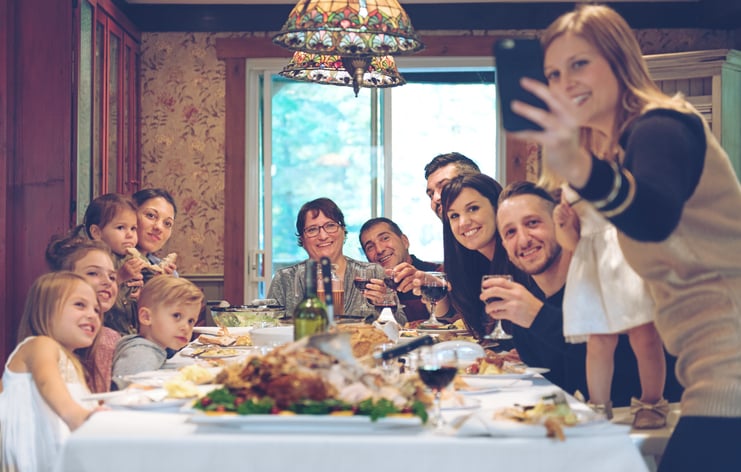The Importance of Social Connections To a Healthy Life

Once a month, my son and I get together with my mom for what we call “Ganny Day” (“Ganny” is what my son calls his grandmother). We typically choose a fun activity or outing; for instance, we have enjoyed numerous museums, events, walks, movies, and meals together.
This all started several years ago when I was trying to find the perfect gift for my mom, who, like many of us, already has more stuff than she needs. I realized the one thing she and I were often craving was time together—along with time with her only grandson. So, out came the calendars. At least once a month, we set date to spend the day together—no matter how busy the rest of our lives become.
Not only has this been amazing for our relationship, but as it turns out, spending time with loved ones has profound benefits. In fact, a sense of community, social support, and feeling connected to your environment are fundamental keys to healthy aging.
The Importance of Social Connections
In the Health and Retirement study with 1,604 participants over 60 years old, scientists at the University of California revealed that those who were described as lonely were more likely to experience difficulty in their daily activities, decreased mobility, and increased difficulty in stair climbing. What’s more, loneliness significantly increased the risk of death. In fact, having regular visitors cut the risk of early death by over 50%.
By comparison, obesity increases the risk of dying before 70 by 30%. That’s right, loneliness is deadlier than obesity! Other research has shown that lacking social connections can be harder on your health than smoking or high blood pressure. The importance of social connections CAN NOT be overstated.
But the advantages of gathering with friends and loved ones aren’t only to be enjoyed by people over 60. No matter what your age, there is a wide range of benefits associated with the importance of social connections, including:
- Increased self-esteem and feelings of self-worth
- Enhanced sense of belonging and purpose
- More kindness and other positive behaviors
- More empathy for others
- Greater levels of trust and openness, leading to greater cooperation
- Enhanced connections and bonds with others
- A healthier immune system
- Faster recovery from sickness
- Lowered rates of depression and anxiety
- Reduced stress
- Increased happiness
- Increased ability to cope with stress, especially traumatic events
Plus, these relationships support a healthier lifestyle, encourage positive behavior changes such as decreased drinking and increased exercise, and one of my favorites—they allow us to create wonderful shared memories.
Despite all these amazing benefits, authentic social connections and meaningful social interactions appear to be dramatically declining. For example, in one research article titled “Social Isolation in America,” researchers from the University of Arizona and Duke University reported that the number of folks who say they don’t have anyone to discuss important issues with has nearly tripled since the 1980s.
How to Boost Your Social Connections
Investing your time and effort to connect with your loved ones can have a positive impact on virtually every aspect of life—both yours and theirs. The fact of the matter is that we are profoundly social creatures. We are meant to be part of a tribe, and we thrive when we have a sense of community.
Yet, in this world of competing priorities and often with families spread far and wide, how do you maintain, or better yet, tighten your social connections and increase your time together?
Start by scheduling quality time with your loved ones: a date night with your partner, a lunch hike with a friend, a special outing with a parent or child. Then set aside phones and other distractions, enjoy eye contact, and listen to listen—not to formulate a response.
Even if you’ve found yourself growing distant from your loved ones, you can still strengthen connections by practicing random acts of kindness to strangers, making someone laugh, or just simply showing appreciation. I have a co-worker, for example, who I now see as a friend, even though we’ve never met in person just because he’s perhaps the most appreciative person with whom I’ve come in contact. He always emphasizes the positives. After an email or phone call with him, I’m compelled to be nicer to everyone around me. (Thanks for that, Coach Tim!)
Take the time, starting today, to create (or re-create) genuine connections with your friends and loved ones—new and old, near and far. The importance of social connections is key to a healthy life. It’s absolutely worth it—for your health and theirs!






